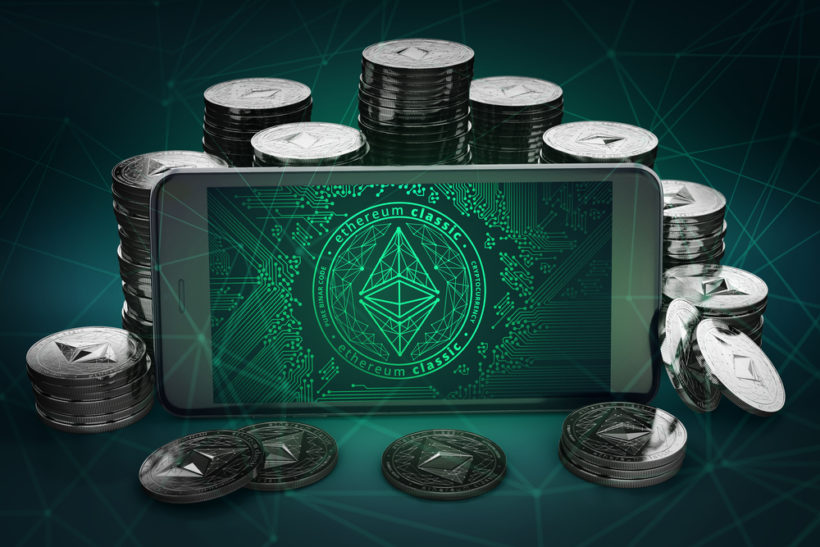CFTC, the U.S. Commodity Futures Trading Commission announced in January that they have filed a case against My Big Coin. The defendant’s lawyers pleaded to dismiss the case as arguing that the CFTC has jurisdiction over the digital token. However, On Wednesday, 26 September 2018, a Senior U.S. District Court Judge, Rya Weickert Zobel, overruled the dismissal plea and confirmes that CFTC hold rights to oversee all cryptocurrencies.
As reported by Reuters, Judge Zobel’s acceptance will now allow the case to move forward to the jury trial demanded by the CFTC. On 24 January 2018, the CFTC announced via a press release that it had filed:
“a federal court enforcement action under seal on January 16, 2018, charging commodity fraud and misappropriation related to the ongoing solicitation of customers for a virtual currency known as My Big Coin (MBC).”
The Complaint charged
“Defendants Randall Crater of East Hampton, New York, Mark Gillespie of Hartland, Michigan, and My Big Coin Pay, Inc., a corporation based in Las Vegas, Nevada, with misappropriating over $6 million from customers by, among other things, transferring customer funds into personal bank accounts, and using those funds for personal expenses and the purchase of luxury goods.”
The complaint also notes that the Defendants’ “fraudulent acts and practices” were in violation of Section 6(c)(l) of the Commodity Exchange Act (CEA) and the Commission’s Regulation 180.l(a). Moreover, CFTC stated that:
“virtual currencies are encompassed in the definition of ‘commodity’ under Section la(9) of the Act.”
In their attempt to get the case to be dismissed, the lawyers of Randall Crater argued CFTC right to regulate the virtual currency MBC as it is “neither a tangible good nor a service on which future contracts are being traded. ”
Judge Zobel’s observations
According to the memorandum of the court’s decision, Judge Zobel decided to deny the motion to dismiss after considering the following observations:
“… to state a viable claim, plaintiff [CFTC] must adequately plead that MyBig Coin is a commodity.”
“The text of the statute supports plaintiff’s argument. The Act defines ‘commodity’ generally and categorically, ‘not by type, grade, quality, brand, producer, manufacturer, or form’.”
“… the scant case law on this issue also supports plaintiff’s approach. In a series of cases involving natural gas, courts have repeatedly rejected arguments that a particular type of natural gas was not a commodity because that specific type was not the subject of a futures contract.
” Previous decisions in cases involving other commodities (such as natural gas) support the plaintiff’s view that “the CEA only requires the existence of futures trading within a certain class (e.g. “natural gas”) in order for all items within that class (e.g. “West Coast” natural gas) to be considered commodities.”
“… the amended complaint alleges that My Big Coin is a virtual currency and it is undisputed that there is futures trading in virtual currencies (specifically involving Bitcoin). That is sufficient, especially at the pleading stage, for plaintiff to allege that MyBig Coin is a “commodity” under the Act.”
Crater’s lawyer, Katherine Cooper, said via email:
American lawyer Jake Chervinsky, the associate at the Washington-based litigation boutique Kobre & Kim, made the following comments about this decision by the U.S. district court on his official Twitter account:
4/ The ruling then explains that bitcoin is dealt in futures contracts, so bitcoin fits the definition of a commodity. Okay, makes sense.But there aren’t any My Big Coin futures contracts, so why would *it* be a commodity?
— Jake Chervinsky (@jchervinsky) September 26, 2018
8/ To be clear, this ruling isn’t that big of a deal.It doesn’t mean every crypto is now officially a commodity across the US. It just means the CFTC did a good enough job in this case to move on to the next stage. The question of how to classify digital assets will burn on.
— Jake Chervinsky (@jchervinsky) September 26, 2018











